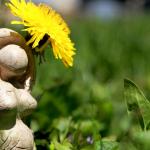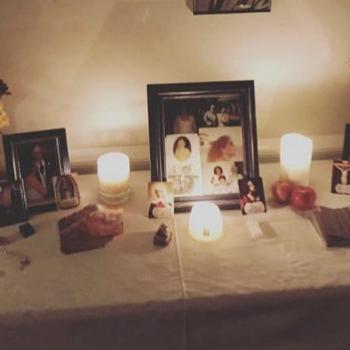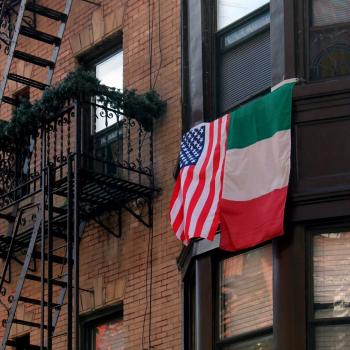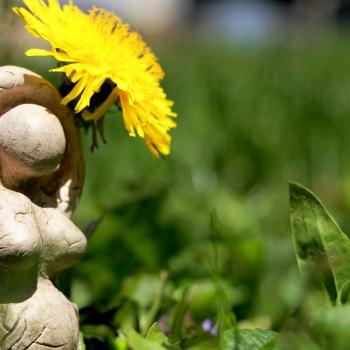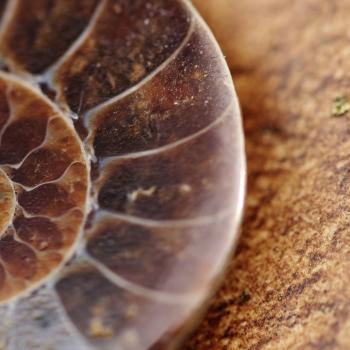The first clear memory I have is of flushing my father’s drugs down the toilet. I was three, maybe four, and my mother told me to take the pills, dump them in the toilet, and flush them. I didn’t know why, I didn’t know what they were, but I knew that my mother loved me and I’d do anything she asked.
My father was kind, and he made wonderful grilled cheese sandwiches. On days when he would be home with me while my mother worked, I remember taking walks with him and sometimes going to the playground near our apartment. I never remember my father yelling at me. He had a kind voice and a smile that made me feel warm inside. He called me his “principessa” – princess, in Italian.
He was also a drug addict. He struggled with addiction long before I was born, long before he knew my mother. He lost a coveted scholarship to play football at the University of Nebraska because of his substance abuse. He lost nearly every job he ever had. He almost lost his own life more than once. He almost killed me in a car accident when I was four years old. Eventually he lost my mother, his marriage, and his relationship with me, due to his drug addiction. And last year, at the age of 67, he lost his life.
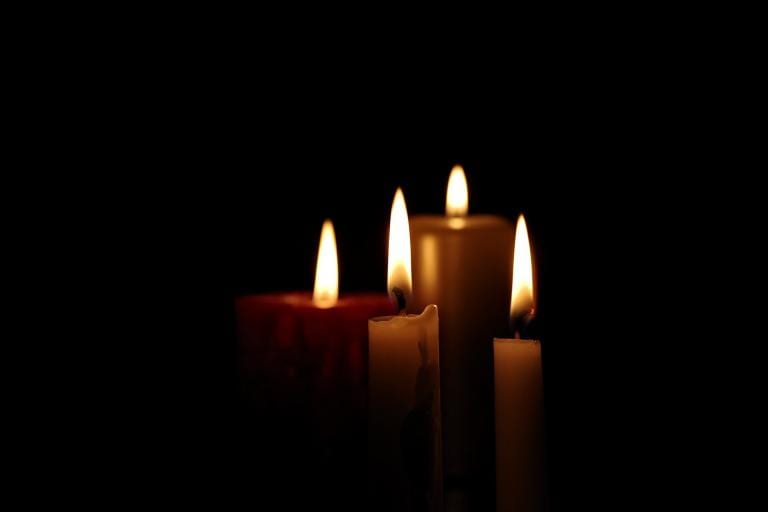
The Art of Losing
Yet, to me, he’d been lost for years before he died. The last time I spoke with him on the phone, I was in high school. The last time I’d seen him in person, I was twelve. I only learned that he died because I did a google search of his name, out of curiosity, and discovered his obituary. It was almost a year after his death when I found out he died. I wasn’t even mentioned in his obituary, which seemed somehow fitting as a final note of the chord that was my family of origin. With my mother long gone, and no siblings, I and my children are what remains of my blood line. His last name will die with me.
Every year during the lead up to our “Il Morti” or Day of the Dead, also known as the feast of All Souls, I retrieve the items from a box in the basement to build the altar. The white cloth, the candles, the special vase, the accumulated ancestor mementos and photos from years past. This year, a new photo will be added, a new ancestor to pray for and ask to pray for me. A complicated story, a hurting man who hurt me in ways I will likely never fully recover from.
My father is not the only one in my near ancestry with whom I have a complicated relationship. Without airing the entirety of my family’s dirty laundry, let’s just say there is alcoholism, domestic violence, untreated mental illness, military induced PTSD, and verbal and emotional abuse up and down my family tree.
Given my own trauma, anxiety, and depression, over the years I’ve developed an interest in reading about trauma and its origins. Bessel van der Kolk’s work, The Body Keeps the Score, is perhaps the most well-known books discussing the effect of trauma on the body. New research in the field of epigenetics is also revealing that there is a biological basis for symptoms of trauma and its passing through generations. When a woman experiences trauma, she carries that in her body and when pregnant, the effect of that trauma is passed on a cellular level to unborn children. Science is figuring out what spirituality has known all along – it doesn’t begin with us.
Trauma winds itself around the branches of our family trees, and its roots reach back generation after generation, existing in the hearts and lives of the people whose bodies we are made of, though we will never know their names. How then, do spiritually inclined people who desire the connection and rootedness of ancestor work and veneration, face the reality of ancestral trauma? The only way we can, if spiritual health and real communion is what we desire: head-on. Refusing to sugar coat any part of the people and places from which we come.
We are human persons, constellations of fears and joys and sorrow and love living side by side. The human soul is capable of unfathomable willingness to love, and unimaginable cruelty and hate. For most of us, our lineage will include people who did both. It may include both in the same person. Human persons who loved their families, and went to work, and were considered upstanding citizens, at one time owned other human beings. The deep spiritual toxicity of that reverberates through the generations for those of us who have roots traced back to colonialism and slave trade.
For those of us whose immigrant ancestors also paid the high cost of assimilation into the American Dream, there are wounds and traumas related to the abandoning of language, culture, belief, sometimes even names, to be “brought in” to whiteness and the promises of white supremacy. These loses must be confronted to be healed. Our ancestors’ participation in or benefitting from Colonialism and the Atlantic slave trade must be faced head-on and healed.
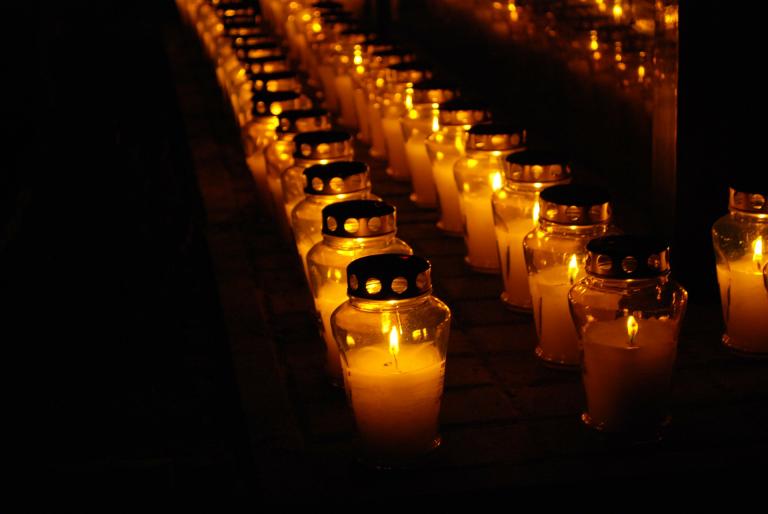
Facing Trauma
Facing trauma head on, in ourselves and our ancestral lines, involves many things. The role of a good therapist cannot be overstated. Daily meditation practice, perhaps medication to address symptoms of trauma. Finding a supportive network of other folks doing this work is invaluable. This work is hard, it may cause others tremendous discomfort for you to address these ghosts, but it must be done. We can break the generational trauma cycles, and our ancestors wish to work with us in doing so.
One of the most difficult and most healing things we can do to repair ancestral trauma and break these cycles is forgiveness. I’ve had much to forgive when it comes to my relationship with my father and his abandonment. There has been much to forgive in my relationship with those who raised me after my mother’s death, and the ways their brokenness contributed to my trauma.
Forgiveness is defined by psychologists as a conscious decision to let go of feelings of resentment toward a person or persons who have harmed you. Easier said than done, right? I’ve heard a backhanded argument for forgiveness put this way, “Resentment is drinking poison and expecting the other person to die.”
In the end, clinging to resentments and pain from wrongs done to us only harms us. It does nothing to the other person. One of the best arguments for attempting forgiveness is that the medicine of forgiveness doesn’t heal the other person, it heals us. Its healing power is for us. To quote from Honoring your Ancestors:
“Forgiving is not the same as forgetting. You don’t need to deny what has happened to you, or pretend it wasn’t that serious, or that it still doesn’t affect you. Forgiveness can help heal a damaged relationship with family members who are equally committed to doing right in that relationship. Does it mean you must stay in the relationship? No. You can forgive someone you are estranged from.”
You can forgive someone and demand accountability from them, pursue legal action against them, or even speak publicly about how they have harmed you. Forgiveness is a choice that you make, for you. Forgiveness is a decision that says, this person no longer has any power over me. It’s also a process, not a one and done. It can take years to truly forgive someone who has perpetuated harm against you, and to work to extricate the poison from your soul. I can personally attest to that. It has taken me years to forgive my father, and even now, upon learning of his death, a new wave of resentment is alive in me. How dare he make the final decision and die, slamming the door of reconciliation – one I don’t even think I wanted to stay open – in my face. Yet another abandonment. These feelings will not always be rational.
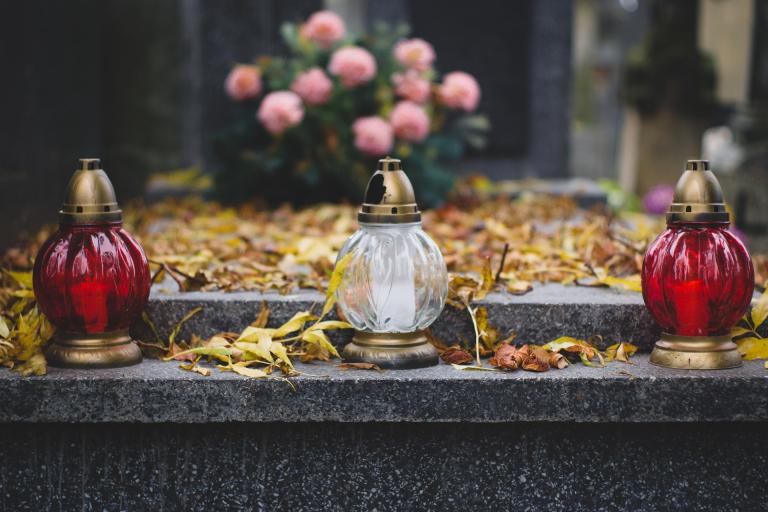
Forgiveness and Creation
For me, the creation of an ancestor altar, the ritual of cleansing, consecrating, and adorning the space, then inviting my ancestors to dwell with me, to communicate with them and desire their communication and blessing, has gone a long way toward cultivating the forgiveness of those in my family who have harmed me. It helps to remember, that they share the same genetics as we do, and the same generational traumas flowed through their veins. It never manifests the same way twice, even in families. That said, forgiveness is a choice each person must be ready to make, its an invitation, not a command. Be gentle with yourself as you examine these traumas and resentments in your family. Lean on those who love you.
It’s easier now to look with pity and empathy at my father. I do not know his demons, and I can only guess what made a young man self-medicate with drugs from his early years. I can see now how his trauma drove his choices, and drove the choices he made that traumatized me. He was not a safe parent for me, and perhaps him leaving my life was a severe mercy. While those who raised me imparted trauma to me in different and lasting ways, they were stable and not neglectful. One of the gifts of forgiveness is the ability to look back on our ancestors and see them as both oppressors and oppressed.
We can see them as they are: capable of deep love and deep trauma. We can find our voices and say loudly, “What you did was not alright. I forgive you, and I let you go.”


